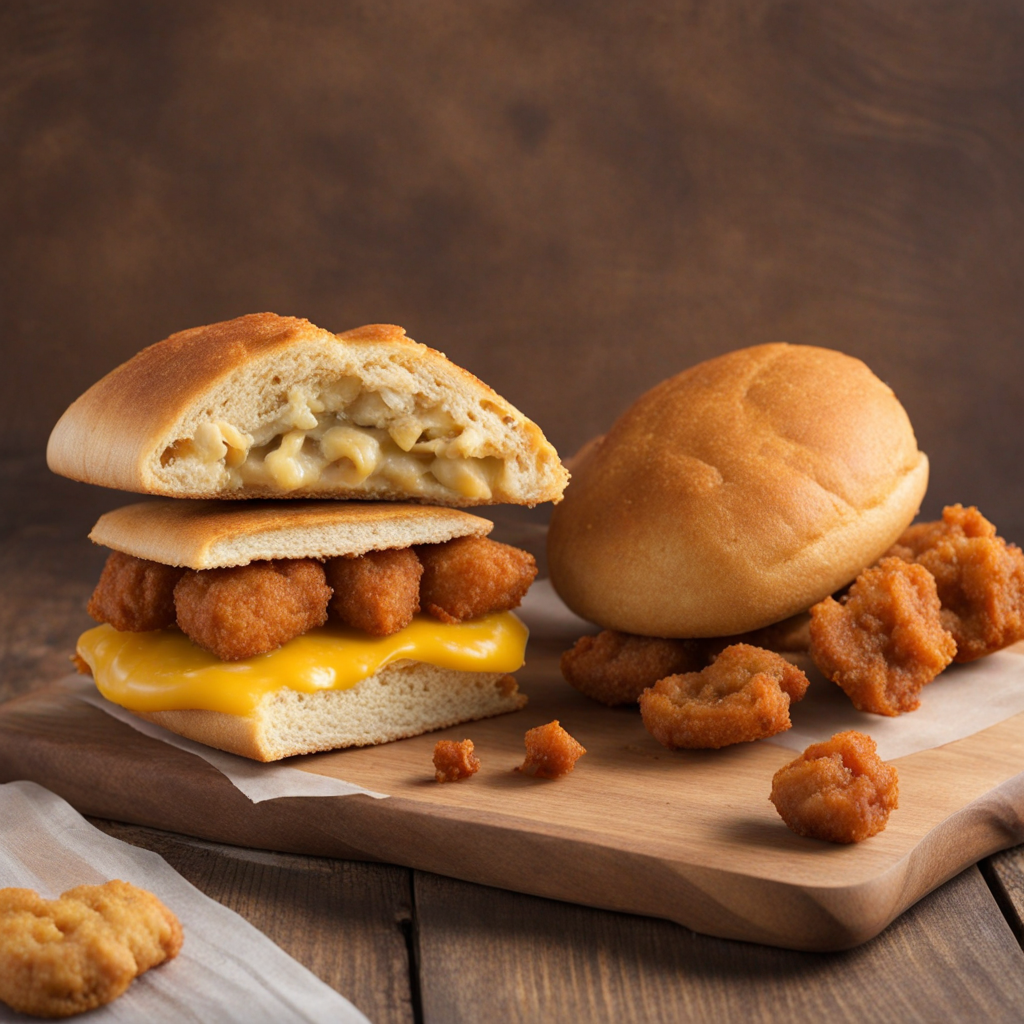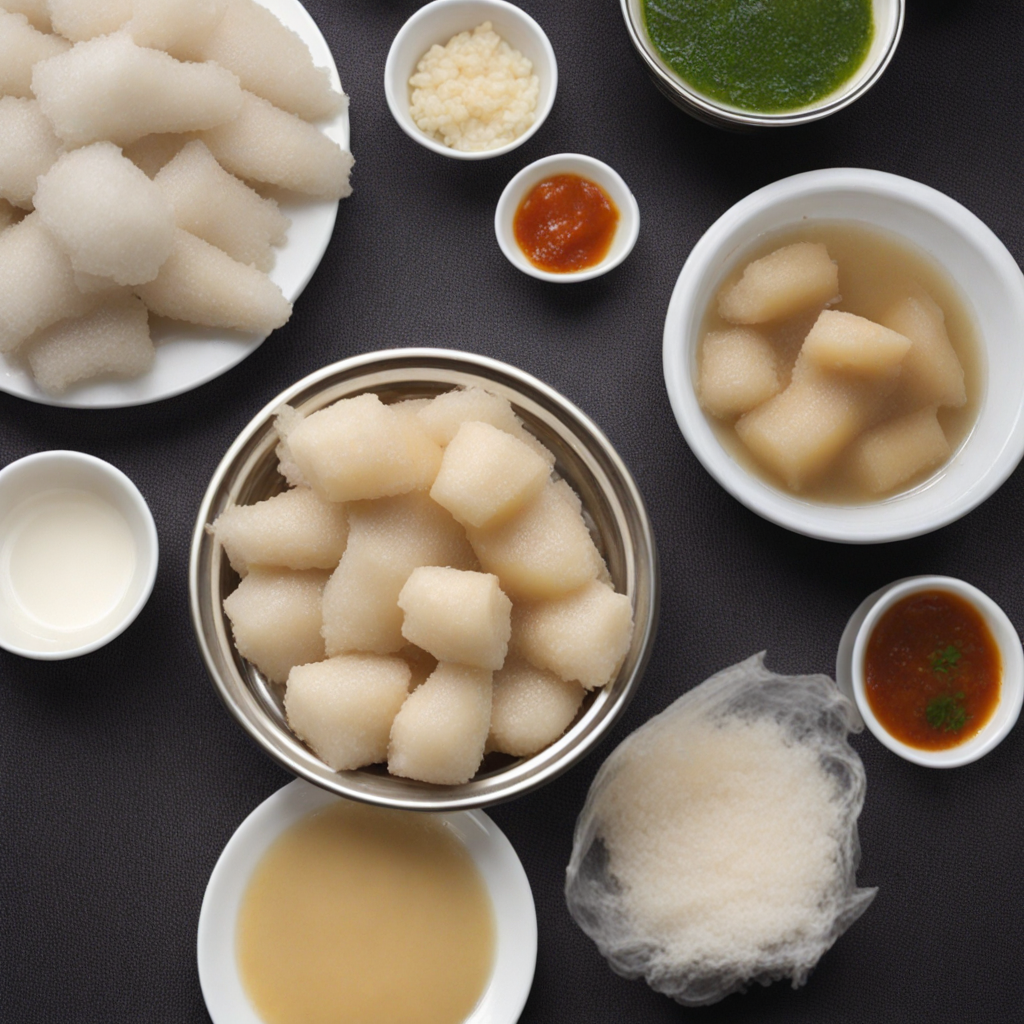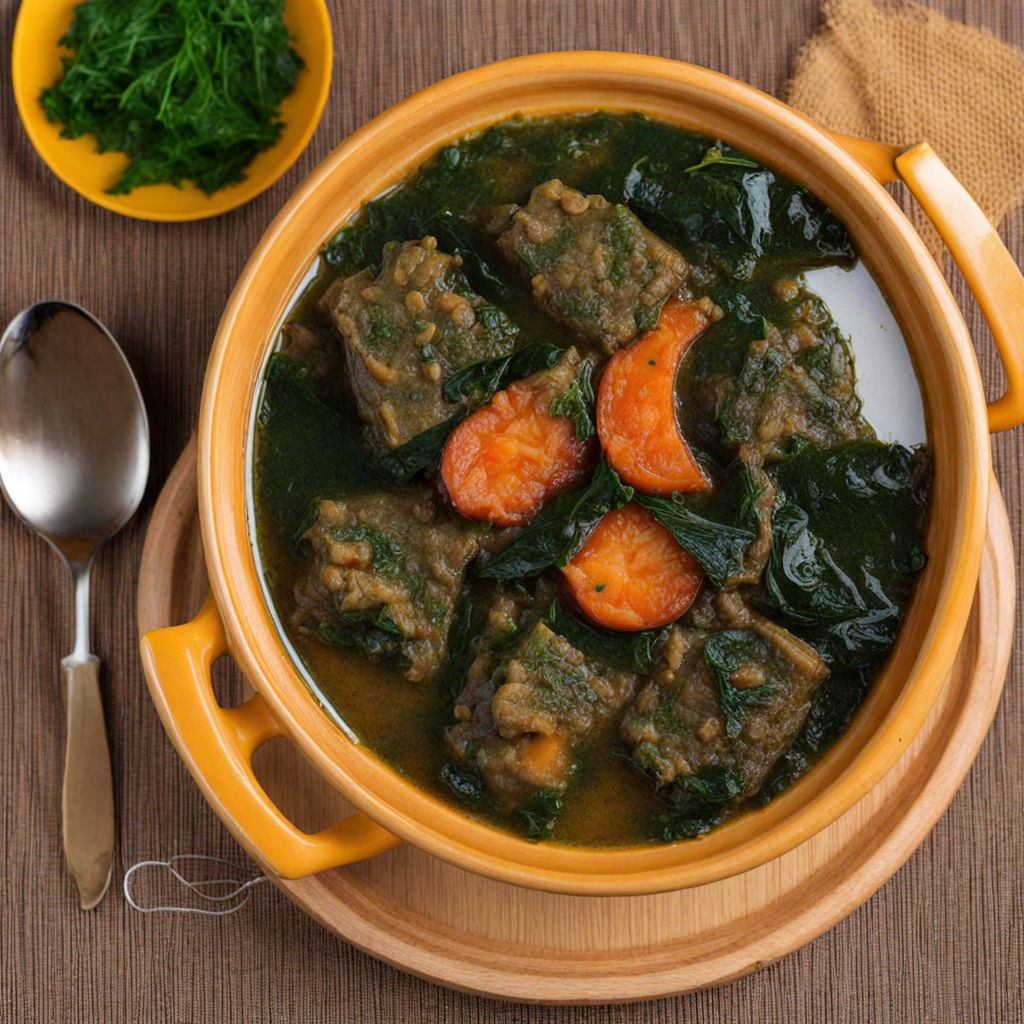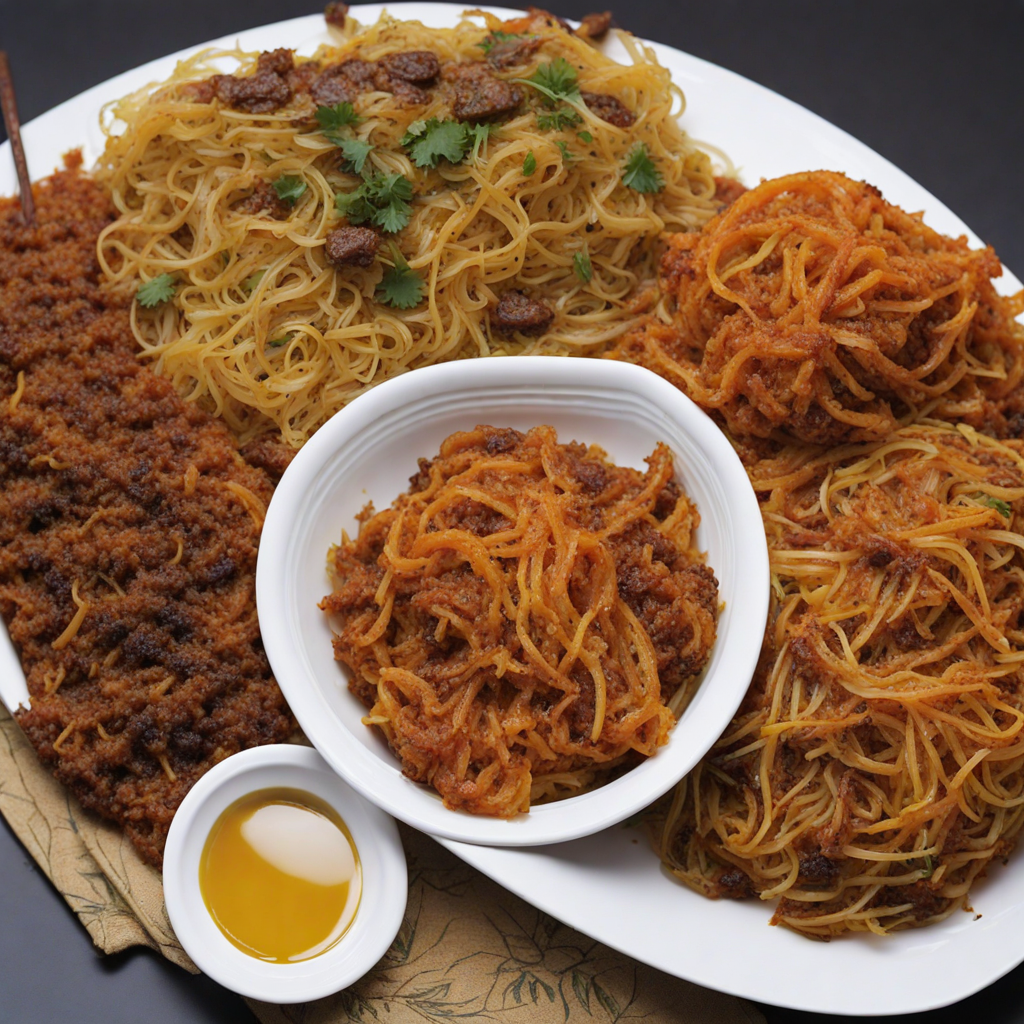Bread and Akara
Bread and Akara is a beloved Nigerian dish that beautifully showcases the rich culinary traditions of the country. Akara, which are savory bean fritters, are often served alongside soft, fluffy bread, creating a satisfying and popular breakfast or snack option across Nigeria. This combination is not only delicious but also deeply rooted in the cultural and social fabric of the nation. The history of Akara can be traced back to the Yoruba people of southwestern Nigeria, where it is traditionally made from black-eyed peas. The dish is thought to have originated from local practices of frying beans, a method that was likely influenced by the broader West African culinary traditions. Over time, Akara has transcended regional boundaries within Nigeria and is now widely enjoyed throughout the country, with variations in preparation and flavor depending on local preferences. The pairing with bread, particularly the Nigerian-style loaf known as "Agege bread," has become a staple, often enjoyed during gatherings, celebrations, and everyday meals. The flavor profile of Bread and Akara is a delightful contrast. Akara, when properly prepared, is crispy on the outside and soft within, offering a rich, earthy taste from the seasoned beans. The fritters are typically enhanced with onions, pepper, and spices, which add a subtle kick and aromatic depth. The bread, on the other hand, is slightly sweet and airy, serving as a perfect counterpart to the savory Akara. Together, they create a harmonious balance that satisfies the palate and provides a fulfilling experience. Preparation of Bread and
How It Became This Dish
Bread and Akara: A Cultural Culinary Duet from Nigeria Origins: The Roots of Bread and Akara The story of bread and akara in Nigeria is a fascinating narrative that intertwines the culinary traditions of various ethnic groups, historical migrations, and the evolution of food culture in West Africa. Bread, as a staple food, has ancient origins that extend far beyond Nigeria, tracing back to the earliest human civilizations. The process of bread-making—stemming from the grinding of grains, mixing with water, and baking—has been practiced for millennia across the globe. In Nigeria, the introduction of bread can be attributed to the influence of European colonization in the 19th century, particularly through British and Portuguese contact. The traditional Nigerian diet, rich in grains such as millet, sorghum, and cassava, began to incorporate wheat-based bread, which was adapted to local tastes and customs. Over time, bread became a common feature in urban centers, integrating itself into the daily lives of Nigerians, both as a breakfast item and a snack. In contrast, akara—deep-fried bean cakes—has its roots deeply embedded in indigenous Nigerian culinary practices. Akara is primarily made from black-eyed peas, a legume that is integral to the diets of many West African peoples. The preparation of akara involves soaking the beans, removing the skins, and then blending them to create a smooth batter, which is seasoned with onions and pepper before being fried until golden brown. This dish is believed to have originated among the Yoruba people, who have celebrated akara as both a breakfast food and a snack for generations. Cultural Significance: A Symbol of Community and Tradition Bread and akara hold significant cultural weight in Nigeria, serving not just as food but as symbols of community, hospitality, and celebration. Akara is often consumed during special occasions, such as weddings, naming ceremonies, and festivals. Its preparation is a communal activity; family members gather to soak, peel, and fry the beans, fostering bonds and reinforcing social ties. The aroma of frying akara wafts through neighborhoods, inviting friends and family to partake in the festivities. Bread, on the other hand, has evolved into a versatile accompaniment to many Nigerian meals. It serves as a bridge between cultures, uniting various ethnic groups through a shared culinary experience. In many households, bread is a staple during breakfast, often served with a variety of spreads, such as butter, jam, or even spicy stews. The combination of bread and akara has become a popular breakfast choice, embodying the richness of Nigerian flavors while showcasing the influence of Western culinary practices. Development Over Time: A Culinary Fusion As Nigeria has developed, so too has the relationship between bread and akara. The post-colonial era saw a surge in urbanization and the growth of a bustling middle class, which influenced food production and consumption patterns. Bakeries began to proliferate in cities, offering a variety of breads that catered to diverse palates. From the soft and fluffy white bread to the more traditional agege bread—a Nigerian bread known for its unique texture and flavor—there is now a wide array of options available to consumers. Akara has similarly undergone transformations. While the traditional preparation remains popular, innovative chefs and home cooks have begun to experiment with flavors and presentation, incorporating ingredients such as sweet potatoes, corn, and even spices like curry powder. This creative evolution reflects a broader trend in Nigerian cuisine, where traditional dishes are reinterpreted to appeal to contemporary tastes while still honoring their roots. Furthermore, the globalization of food culture has introduced Nigerian cuisine to the international stage. In recent years, Nigerian restaurants and food trucks have sprung up in cities around the world, showcasing the flavors and traditions of Nigeria to a global audience. The combination of bread and akara has gained recognition as a unique culinary pairing, appealing to both those familiar with the dishes and newcomers eager to explore the diverse flavors of Nigerian cuisine. The Role of Bread and Akara in Modern Nigerian Society Today, bread and akara continue to play vital roles in daily life and cultural expression in Nigeria. Breakfast spots and street vendors serve freshly made akara alongside loaves of bread, creating a bustling atmosphere filled with the sounds of sizzling oil and chatter. This pairing is not merely a meal; it represents the vibrant street food culture that thrives in Nigerian cities, where food is a focal point for social interaction. Moreover, bread and akara have adapted to the changing dynamics of Nigerian society. With the rise of health consciousness, alternative recipes that utilize whole grains, gluten-free flours, or plant-based ingredients are becoming more prevalent. This evolution reflects a growing awareness of nutrition and health, while still honoring the traditional flavors and textures that characterize these beloved dishes. Conclusion: A Culinary Legacy The story of bread and akara is a testament to the resilience and adaptability of Nigerian culinary traditions. From their historical origins to their contemporary significance, these foods embody the fusion of cultures, the spirit of community, and the celebration of heritage. Whether enjoyed at a bustling street corner or served at a family gathering, bread and akara continue to nourish not only the body but also the connections that bind people together. In a world that is increasingly globalized, the enduring popularity of this simple yet profound pairing serves as a reminder of the importance of food in shaping identity and culture. As Nigeria continues to evolve, so too will the legacy of bread and akara, ensuring that future generations will savor this delicious culinary duet for years to come.
You may like
Discover local flavors from Nigeria







